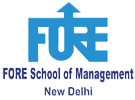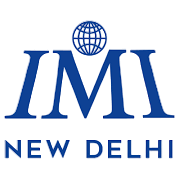

Program in Healthcare Analytics
Empower your career in healthcare with FORE's Healthcare Analytics program. Master data analysis, machine learning, and strategic decision-making to drive healthcare excellence.
Only Doctors are Eligible.

Learn with Experts
Enhance your learning with strategic experts
Learn Anything
On healthcare analytics activities
Flexible Time
Access to your learning, with your satisfactory schedule
Industrial Standard
Get a standardized framework for your brand
Program Overview
Build Foundational Knowledge in Healthcare Systems
Give students a thorough grasp of healthcare systems, including how they are delivered, how regulations are enforced, and how data may be used to improve patient outcomes.
Master Data Analytics Tools and Techniques
Offer practical exposure to the newest approaches and tools in data analytics, such as predictive modeling, statistical analysis, machine learning, and data visualization with a focus on healthcare applications.
Enable students to apply analytical tools to real-world healthcare problems
This will improve their capacity to make data-driven decisions that lead to better clinical and operational outcomes.
Introduce Health informatics
Students to the concepts of health informatics, such as electronic health records (EHRs), health information interchange, and the fusion of data from diverse medical technology.
Encourage Ethical and Legal Standards
Establish a thorough awareness of the moral, legal, and regulatory aspects of healthcare analytics, with a focus on patient confidentiality, data security, and adherence to laws like HIPAA.
Improve Your Ability to Communicate and Make Decisions
To facilitate well-informed decision-making, improve students' capacity to successfully communicate complex analytical findings to a range of stakeholders, such as administrators, politicians, and physicians.



Testimonials
Course Curriculum
Data Mining is intimately intertwined with Statistics. Knowledge of basic statistics is essential for a successful analyst. Many ‘Small data’ techniques such as correlation, testing of hypothesis, data-transformation and others need to be learnt to fully understand data. Concepts of inferential statistics are used in comparing machine learning models. Descriptive statistics is invariably used in data pre-processing. In this Course we refresh as also learn statistical fundamentals and essential inferential statistics
- Measures of Central Tendency and Dispersion
- Probability Theory (Different Approaches, Rules of Probability, Bayes’ Theorem)
- Random Variables and Probability Distributions Discrete Probability Distributions
- Continuous Probability Distributions – Normal Distribution
- Correlation and Regression Analysis: Simple & Multiple Regression
- Concept Of Hypotheses Testing, Type I & Type II Errors, Power Of The Test, Hypothesis Testing of Mean and Proportion, Two Sample Tests, Tests for Difference in Means and Proportions.
- Chi-Square Goodness-of-Fit Test, Test of Independence
We practice those modelling techniques that consistently garner high performance, are relatively fast and are well known in ML community. Thus, these will be of immense use in many predictive applications. These techniques do not perform that well with image or video data.
- Introduction to Machine Learning Technology
- Data visualization and discovering structure in data. (Techniques include t-sne, parallel coordinates, and mosaic plots) and Feature Importance
- Unsupervised learning techniques
- K-means clustering
- Hierarchical clustering
- Expectation-Maximization algorithm
- T-SNE & UMAP manifold learning technique
- Dimensionality reduction
- Principal Component Analysis (PCA)
- Supervised learning techniques for Classification and Regression
- Decision trees
- Ensemble modeling using Random Forest
- Gradient Boosting Techniques
- Gradient Boosting Learner
- XGBoost
- LightGBM
- Performance measures: Accuracy, Precision and Recall, F-measure; Area Under the Curve, Cohen’s Kappa, Sensitivity, Specificity
- Hyper-parameter optimisation techniques—Bayes Optimization
- Interpreting Machine Learning Models
- Introduction to Neural Networks (NN)
- Experiments with MLP networks
- Regularising NN
- Dropouts
- Batch-normalization
- l1 and l2 regularization
- Starting weight initialization
- Deep Learning with Convolution Neural Networks
- Data Augmentation
- Using very Deep Convolution Networks
- Transfer learning with VGG16
- Transfer learning with ResNet50
- Transfer learning with InceptionV3
- Recurrent Neural Networks
- LSTM, GRUs, and Bi-directional LSTM
- General Architecture of Transformers
- Zero-shot classification and few-shot learning
- Ollama and anything LLM installation
- Embedding, vector databases and search
- Prompt Engineering
- Developing knowledge products in healthcare using web UIs for LLM
Book your seat now for Free!
Faculty & Mentors

Prof. Ashok Kumar Harna
Professor Ashok Harnal, with 31 years of work experience, holds a B.Tech from IIT Delhi and an M.Phil from Punjab University, Chandigarh. He specializes in implementing Hottonworks and Cloudera-based big-data systems and has led projects like Raksha Bhoomi for land records and establishing a Disaster Management organization in Delhi.
Admission Process
01. Complete the inquiry form
Once you submit the Query Form, a counsellor will contact you to discuss your eligibility.
02. Get Called and Put on a Shortlist
Our admissions committee will examine your profile. You will receive an email verifying your program admission as soon as you meet the requirements.
03. Reserve a seat and start the preparatory session
To join the program, pay for your seat in advance. Start your Product and brand management journey with your Prep course!
Program Fee
Book your seat now for Free!
What are you waiting for?
Get Started Now
Frequently Ask Questions
The goal of the healthcare analytics program is to give students the information and abilities they need to evaluate medical data, enhance patient outcomes, and streamline healthcare operations. Data management, statistical analysis, predictive modeling, and the use of analytics in healthcare settings are all covered in the program.
Healthcare workers, data analysts, IT specialists, and everyone else interested in using analytics in the healthcare sector would find this program to be very beneficial. This curriculum is beneficial for both novices and experts in data analytics or healthcare.
While each school may have different requirements, a fundamental knowledge of statistics and healthcare but some programs also require a bachelor's degree in a related field.
Depending on the curriculum, participants may earn a post-baccalaureate certificate, a master's degree, or even a certificate in healthcare analytics upon successful completion.
Decision-making in the healthcare sector is becoming more and more reliant on data. Successful completion of this program can lead to employment as a clinical analyst, healthcare IT consultant, data analyst, or in management and policy within the healthcare industry.
Graduates can work for insurance companies, pharmaceutical companies, hospitals, healthcare systems, public health groups, and consulting firms. Professionals with expertise in healthcare analytics are in high demand.









































